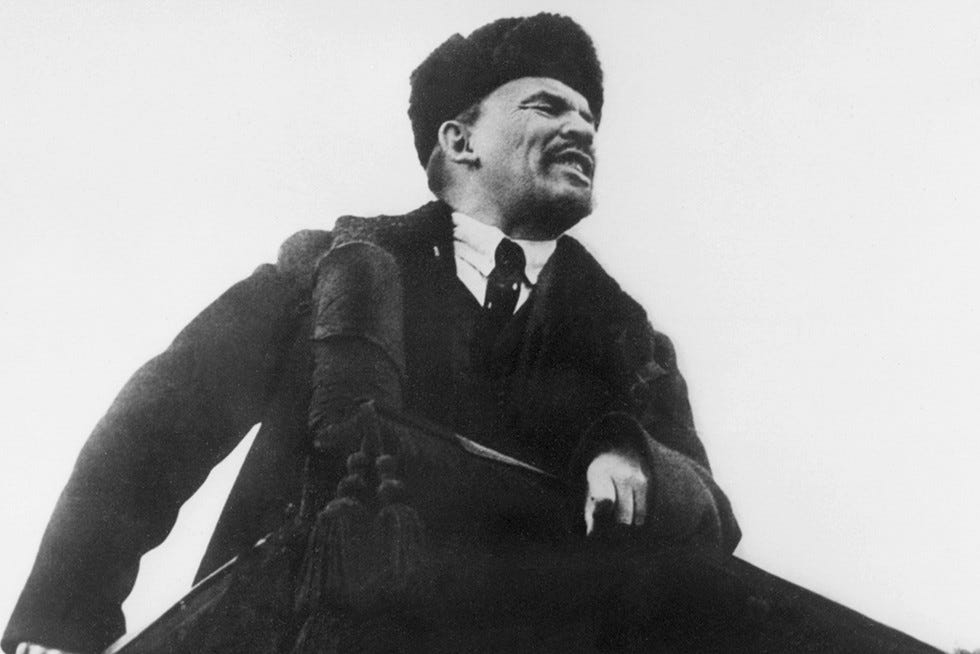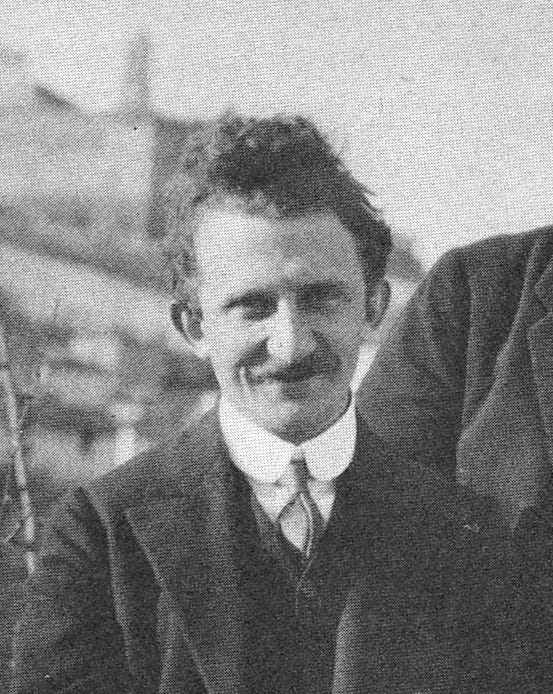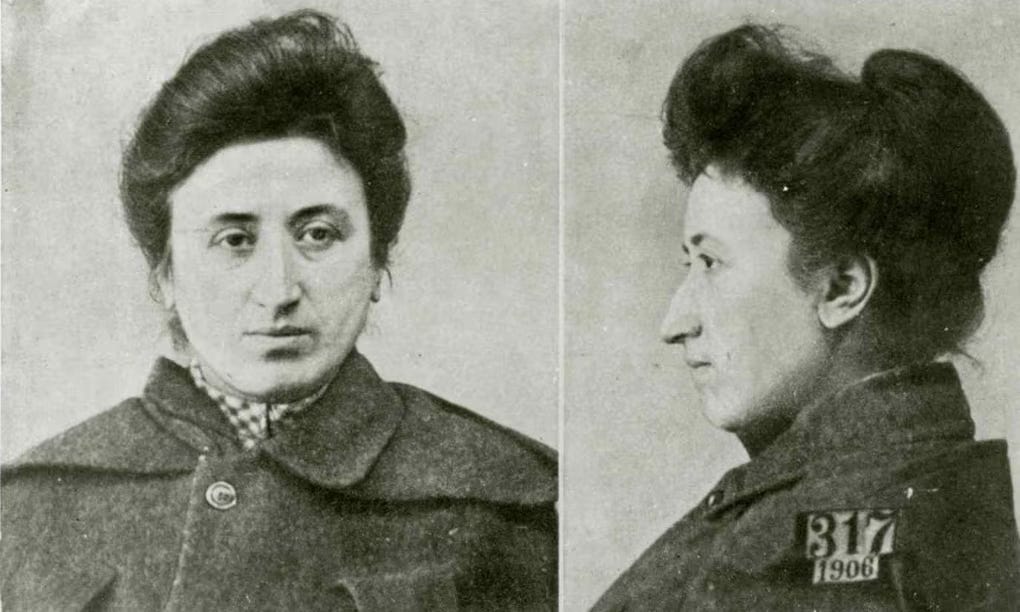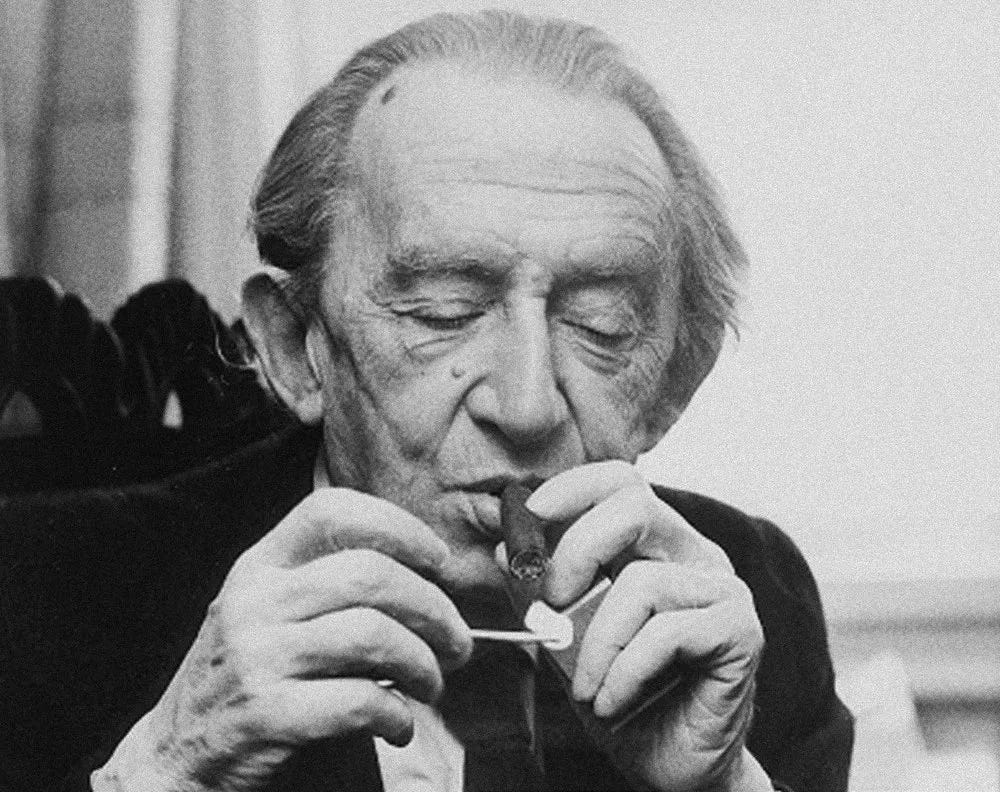There seems to be a continued shrinking from the concept of a vanguard party within the left. I often hear repeated–one party states necessarily terminate in totalitarianism.
There also seems to be a grave misunderstanding that Marxists are unable to grasp the true meaning of then concept of democracy.
When comrades are finished talking past each other on this point, I think the anxiety anti-Marxists or anti-Leninists share becomes clear–they really want to ask: “Would you stab me in the back? Remember Kronstadt?”
The principle Marxist theoretical concept we are talking about is the dictatorship of the proletariat. Many who raise the objections above would also probably hold misgivings about this particular piece of Marxism.
To the extent that people withdraw from democratic centralism, the vanguard party, the one-party state, they have misunderstood what is actually going on in Marxism–and further, many of the lessons of the past are beginning to become forgotten.
Class Society and its Abolition
Going beyond judging the phrase by how it immediately sounds, many people have leveled serious accusations of blood-thirstiness, power-hungriness, and brutish excess against the dictatorship of the proletariat.
It is indeed possible to locate easily in Marx’s own pen writing in support of revolutionary terrors, and there was–it goes without saying–no love lost between Marx and Bakunin. There is no shortage of repetition of Bakunin’s famous “people’s stick” epithet.
The issue cannot be dealt with so quickly. Historical materialism is not, as Bakunin would only be so pleased to have you believe, mere Metaphysical trickery.
As shocking as it may sound, Marxists have a firm and sincere grasp on the everyday and common sense meaning of democracy, and are firmly committed to the abolition of all class societies.
The major point Marxists are trying to make is not that history is proceeding necessarily and deterministically toward paradise, and that all we need merely do is hold our party membership cards and nod along. Further, as Lukacs observes,
Orthodox Marxism, therefore, does not imply the uncritical acceptance of the results of Marx’s investigations. It is not the ‘belief’ in this or that thesis, nor the exegesis of a ‘sacred’ book. On the contrary, orthodoxy refers exclusively to method. It is the scientific conviction that dialectical materialism is the road to truth and that its methods can be developed, expanded and deepened only along the lines laid down by its founders.
What is Orthodox Marxism? Page 1.
The notion that Marxism is some dogma that, say, follows in line with the “tradition of Russian autocracy” is a convenient and popular attitude, and completely ignores the content of Marxism.
Marxism speaks of a true and genuine revolution, one that addresses the substance of the ills of capitalist society. Marx was clear when he addressed Proudhon:
Does this mean that after the fall of the old society there will be a new class domination culminating in a new political power? No.
The condition for the emancipation of the working class is the abolition of every class, just as the condition for the liberation of the third estate, of the bourgeois order, was the abolition of all estates and all orders.
The Poverty of Philosophy (1847).
The reason why follows in the very next paragraph–the abolition of the working class is the abolition of all classes altogether:
The working class, in the course of its development, will substitute for the old civil society an association which will exclude classes and their antagonism, and there will be no more political power properly so-called, since political power is precisely the official expression of antagonism in civil society.
Capital and its Abolition
One should not, either, be distracted by the discussion in an earlier paragraph of the “productive forces” because it contains considerable elaboration on exactly what the details of this universal abolition of class are:
Of all the instruments of production, the greatest productive power is the revolutionary class itself. The organization of revolutionary elements as a class supposes the existence of all the productive forces which could be engendered in the bosom of the old society.
None of this relies on any concept of blind historical necessity, instead it is dealing with the discovery of where liberatory agency lies within capitalism.
Lukacs captures the essence of this theory of class struggle:
Only when consciousness stands in such a relation to reality can theory and practice be united. But for this to happen the emergence of consciousness must become the decisive step which the historical process must take towards its proper end (an end constituted by the wills of men, but neither dependent on human whim, nor the product of human invention). The historical function of theory is to make this step a practical possibility. Only when a historical situation has arisen in which a class must understand society if it is to assert itself; only when the fact that a class understands itself means that it understands society as a whole and when, in consequence, the class becomes both the subject and the object of knowledge; in short, only when these conditions are all satisfied will the unity of theory and practice, the precondition of the revolutionary function of the theory, become possible.
What is Orthodox Marxism? Page 2.
The concept of political-economic class is critical on this point, and cannot be overstated. This is what separated Marx and Bakunin, because for Marxists, once you remove the element of Capital from society, the class struggle is won decisively.
For Bakunin, and indeed many of the detractors of the dictatorship of the proletariat, it is sufficient to abolish the capitalist state alone, by act of will.
When it comes to adducing what it is that Marxism considers the “abolition of Capital”, the dictatorship of the proletariat plays a key role.
One could think of both Rosa Luxemburg and Lenin’s appreciation as “broad” and “narrow” approaches respectively. Luxemburg for the most part gave few prescriptions about the content of the dictatorship of the proletariat, whereas Lenin could be thought of as being more specific–and probably more enthusiastic: it entails democratic centralism–the practice that a worker’s party is, among other conditions, duty-bound to act in unison.
What Luxemburg and Lenin would have both assented to was the necessity of the dominance (or “hegemony”) of the working class through the exercise of power–through a state or otherwise.
Power and its Abolition
There is a popular objection, however, that it is not possible to abolish power by exercising power. So the repetition of Bakunin goes, a worker’s government has no interest in its self-abolition.
The interlocutor that one often finds oneself faced with expressing this objection is often more interested in accusing than attempting to address the actual issue of class struggle.
Class struggle developed naturally within different stages of human history–where there is some dominant social class, be it feudal, slave-owning, or a form of capitalism, there are oppressed classes–subaltern classes.
Under capitalism, we are presented with the dominance of the capitalist class. Marxism commonly regards this state of affairs as the “dictatorship” of the bourgeoisie.
The problem for Marxism here is not so much about how to go about immediately dismantling the capitalist state but understanding the source of its power.
The revolution that Marxism calls for is not attempting to slow down the struggle or deviate it into some form of piece-meal affair.
It is important recognise that there are society-wide forces that cannot simply be prefigured away, and must be dealt with head-on and acknowledged, not simply “abolished”:
In the social production of their existence, men inevitably enter into definite relations, which are independent of their will, namely relations of production appropriate to a given stage in the development of their material forces of production.
Marx, “Preface”, A Contribution to the Critique of Political Economy (1859).
When Marx talks about the “appropriateness” of the relations of production with respect to the development of the forces of production, it is easy to repeat, again, the popular and convenient interpretation that historical materialism just means the “economic base” of society controls or determines necessarily the rest of human social life.
The repetition of this assertion amounts to a vulgarisation of Marxism.
What has been forgotten is that Marx’s materialism did not regard the relations of production and forces of production as neatly conscious mental cognition in such a way as to collect conscious social life wholly within the political-economic superstructure.
Such an interpretation is reminiscent of Althusserianism–and probably of the Kantian division between the phenomenal and noumenal–things that occur in experience, and obversely the spooky “thing-in-itself” which produces our experience of the world external to our senses, but is located completely outside the conscious human world.
It is not so. Every moment of the capitalist mode of production involves conscious rational thought. But it is not the case that this is some kind of Idealism.
Simple negation of the capitalist state is bound to be insufficient for the task of revolution. Whether it be purely physical, or some combination of psychic and non-cognitive metaphysical trappings, it matters not—
Humanity is integrated into a form of life that fits everyone into a division of labour. Every form of class society possesses some unique or defining structure of their division of labour. It was from their analysis of the division of labour under capitalism that Marx and Engels identified not just the causes of modern oppression, but also its future potentialities.
The dictatorship of the proletariat is necessary for Marxists because it acknowledges not merely the moral requirement for revolution, but also that, in some foundational way, there are objective forces at play in revolution which cannot be liquidated through will alone.
The dictatorship of the proletariat addresses this. The process of dissolving all power, all forms of hegemony within society does require the assumption of power, the exercise of some form of social authority and coercive institutions.
The assumption of political dominance by the working class exists only so long as the mode of production has not transitioned to communism. The dictatorship of the proletariat is indeed about a switching place between struggling classes.
But it is not the case that it necessitates merely just another form of oppression. Remember the proletariat–wage-labor–is an instrument of production, a form of productive force.
Dialectics as Theory and Practice
As Lukacs puts it,
Above all the worker can only become conscious of their existence in society when they become aware of themselves as a commodity.
Inasmuch as they incapable in practice of raising themselves above the role of object their consciousness is the self-consciousness of the commodity; or in other words it is the self-knowledge, the self-revelation of the capitalist society founded upon the production and exchange of commodities.
“The Standpoint of the Proletariat”, Reification and the Consciousness of the Proletariat. Page 149.
The dictatorship of the proletariat is as much about wresting domination away from the capitalists as it is about a kind of society-wide self-realisation.
A grasping in consciousness of what before was hidden–the true nature of the capitalist division of labour.
The process is at once transformative as it is a form of discovery. It is a form of creation as well as externally determined knowledge.
The dictatorship of the proletariat involves a dialectical as opposed to a mechanical method–where the proletariat defeats the capitalist class it abolishes the necessity for power. Without this assumption of power over the previously capitalist-controlled division of labour, there is also no self-knowledge. The dictatorship of the proletariat forms the working class as a social subject, whereas before it was enslaved; objectified.
It gives content to the idea of class struggle–without some form of unity, some form of radical organisation, the capitalist machine continues apace.








